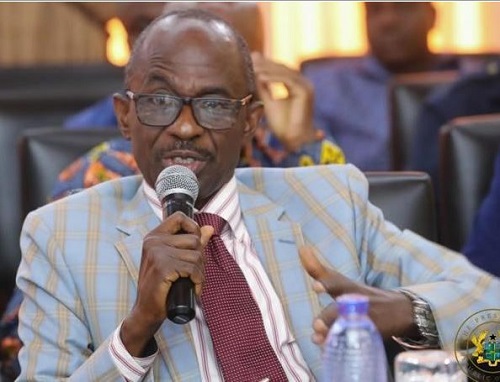The National Democratic Congress (NDC) has advised former Chief Executives and director-generals of state agencies who were removed by the Akufo-Addo government upon assumption of office to seek redress.
It comes after the Supreme Court in a recent ruling concluded that such dismissals are unconstitutional.
In a unanimous decision, a seven-member panel of the court, presided over by the Chief Justice, Justice Sophia Akuffo, held that per Article 190 Clause 1(b) of the 1992 Constitution, public corporations were part of the Public Services of Ghana and, therefore, such persons were public service officers whose appointments were protected by the Constitution.
The NDC in a statement signed by its General Secretary Johnson Asiedu Nketiah said, “The National Democratic Congress welcomes the decision in a recent case in the Supreme Court in which the court held unanimously that it is unconstitutional and therefore null and void, for the government of President Akufo-Addo to remove from office, all chief executive officers and director-generals of public corporations appointed by previous administrations. In so doing, the Court has clarified the constitutional position vis-a-vis the provisions of the Presidential Transition Act.
“The National Democratic Congress is therefore by this statement, advising all such categories of chief executive officers and director-generals who were so affected to take appropriate steps to vindicate their rights in the appropriate foraâ€.
CEOs of public corporations can't be sacked - Supreme Court rules
The Supreme Court has ruled that the removal of heads of public corporations as a result of a change of government is unconstitutional.
In a unanimous decision, a seven-member panel of the court, presided over by the Chief Justice, Justice Sophia Akuffo, held that per Article 190 Clause 1(b) of the 1992 Constitution, public corporations were part of the Public Services of Ghana and, therefore, such persons were public service officers whose appointments were protected by the Constitution.
According to the court, the appointments of such public service officers were governed by Article 195 of the Constitution.
The removal of such public service officers, the court held, must, therefore, be done in accordance with the terms and conditions of their contract of engagement or it must be justified, as stipulated in Article 191 of the Constitution.
Article 195 Clause 1 of the Constitution gives the President of the Republic the power to appoint public service officers, but with the advice of the governing board of the specific corporation, “given in consultation with the Public Services Commissionâ€.
Article 191 (b) states: “A member of the public service shall not be dismissed or removed from office or reduced in rank or otherwise punished without a just cause.â€
Import of the decision
By this decision, the Supreme Court has repealed the section of the Presidential (Transition) Act 2012 (Act 845) which terminated the appointments of the chief executives or director-generals of public corporations, statutory boards and authorities upon the assumption of office of a new President.
“To the extent that Section 14 of the Presidential (Transition) Act 2012 (Act 845) requires the chief executives or director-general (however described) of public boards or corporations to cease to hold office upon the assumption of office by a person elected as President of the Republic of Ghana, the same is hereby declared to be unconstitutional and void for being in contravention of articles 190 and 191 of the Constitution,†the court held.
The unanimous decision of the court was read by Justice Professor Nii Ashie Kotey, while the other members on the panel were Justices Jones Dotse, Sule Gbadegbe, Anthony A. Benin, Samuel K. Marful-Sau and Nene Amegatcher.





